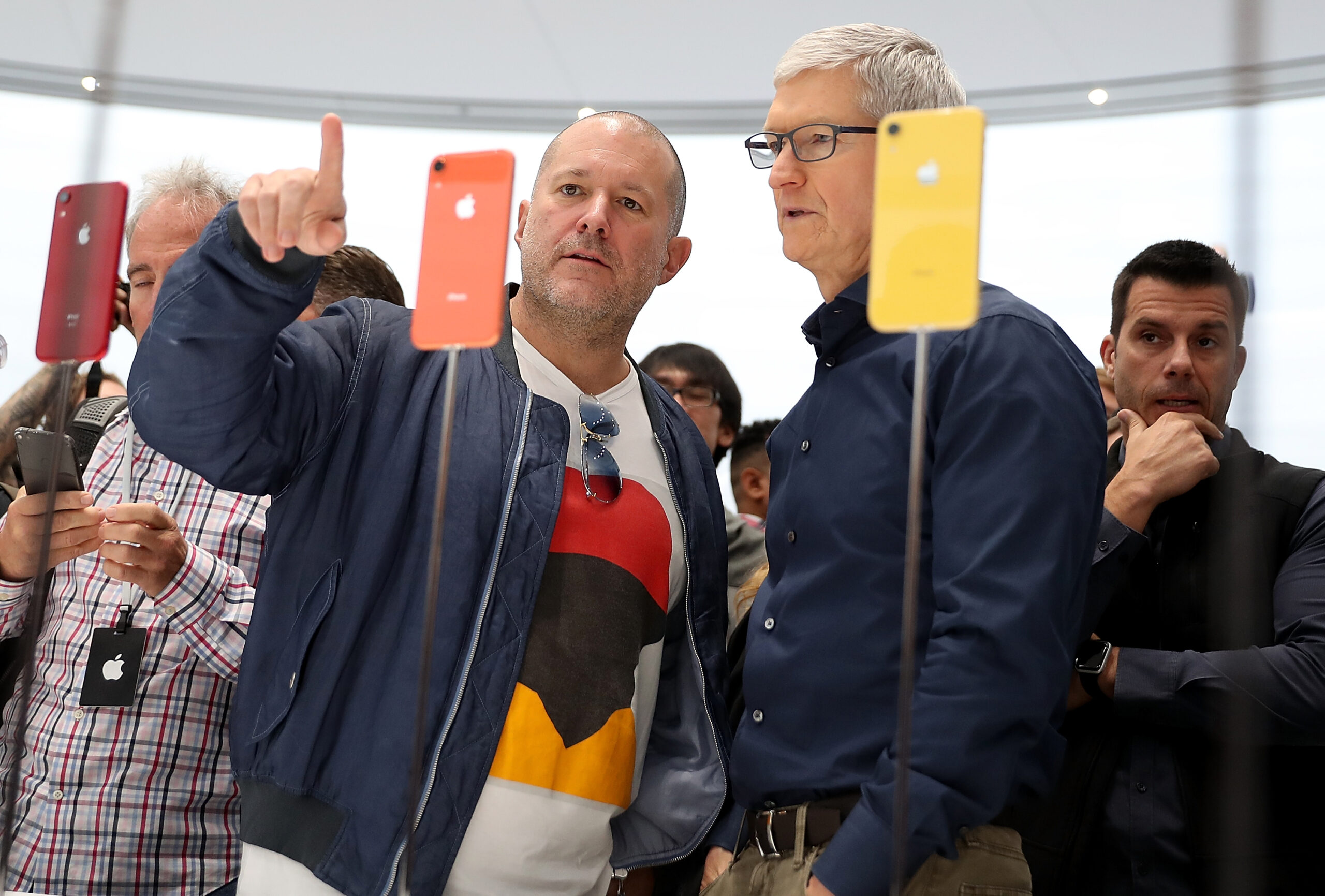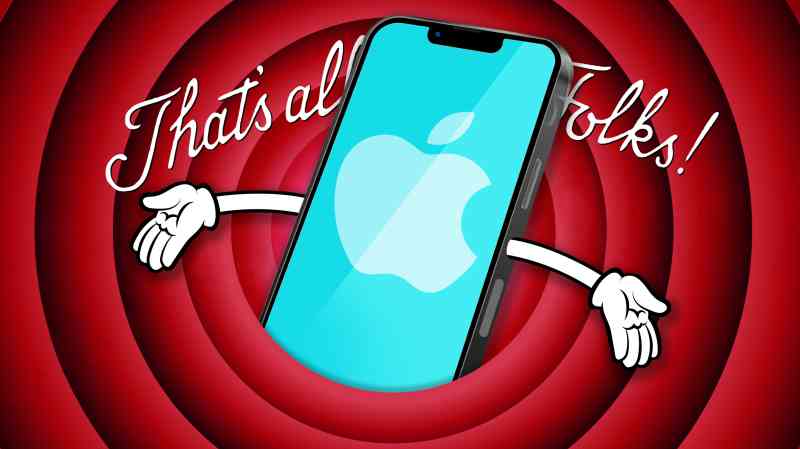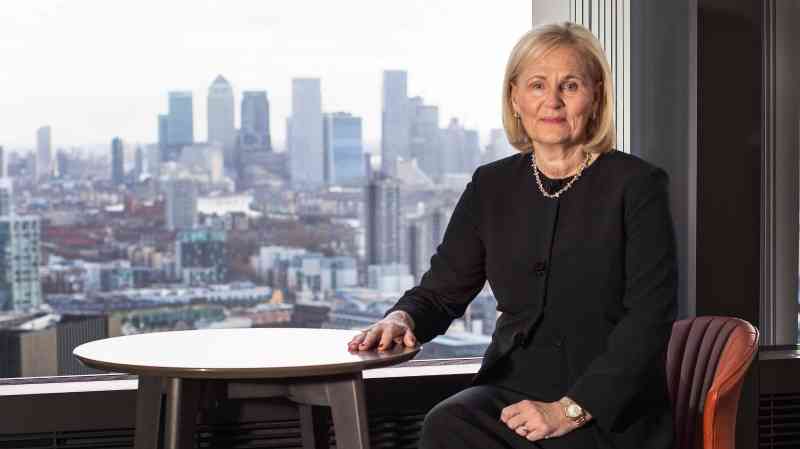Why AI’s new wave poses an existential threat to Apple’s iPhone
Ever since Steve Jobs strode on stage in Cupertino, California, to unveil the iPhone way back in 2007 — “a revolutionary product that changes everything” — rivals have been feverishly trying to make something better: an iPhone killer. To say they have failed is an understatement: Apple sold $200 billion worth of smartphones last year and remains the most profitable device maker on the planet.
And yet, a new generation of iPhone killers, powered by artificial intelligence, has arrived. The good news for Apple is that these early pretenders are, virtually without exception, terrible. The bad news is that Apple is in trouble anyway.
The arrival of AI has raised the spectre of an entirely new way to engage with technology. Why peck away at a little glass rectangle when we can, instead, simply talk to our machines and they will do our bidding? This is the vision of OpenAI chief Sam Altman, who predicted: “Eventually, you’ll just ask a computer for what you need, and it will do all of these tasks for you.”
Apple, founded 48 years ago, looks vulnerable — a tech senior citizen that has been slow to the AI party and instead is relentlessly hawking devices that get ever more expensive even as the apparent improvements it is charging for become almost imperceptible. Over 15 years into the smartphone revolution, this is perhaps not surprising. “It’s kind of like looking at the difference between the car in 1900 and the car in 1905, versus the car in 1980 and 1985,” the tech commentator Benedict Evans said. “There was a period when every new iPhone was substantially better than the one before. That’s clearly not the case any more.”
Even so, Apple is still charging premium prices. Its top-of-the-line iPhone 15 Pro Max has a total cost in the UK of £1,208 (with a 24-month contract), equating to £50 a month — a third more than the £778 total cost of the comparable Google Pixel 8 Pro, according to the comparison service Moneysupermarket.
The upshot is that people who might once have rushed to upgrade to the newest iPhone model are holding on to their device longer. A survey last year by Consumer Intelligence Research Partners found that 31 per cent of buyers had an iPhone that was at least three years old, up from 26 per cent in 2019. Apple has managed to maintain its stranglehold on the market — last year, it accounted for 56 per cent of smartphone sales in Britain, with Samsung a distant second at 23 per cent — but the question is, for how long? The company this month revealed a dip in quarterly sales — the fifth time this has happened in the past six quarters.
At the same time, the $2.8 trillion (£2.2 trillion) behemoth has been hit with lawsuits from the US Department of Justice and the European Commission over allegations that it has morphed into a monopolist sucking rents from rivals reliant on its App Store and otherwise smothering innovation.
Even the company’s legendary marketing machine has misfired. Apple was forced to apologise last week for an advert that showed musical instruments, art supplies and video games being obliterated in an industrial crusher, leaving behind a sleek, ultra-thin iPad. The film director Asif Kapadia said on X that it was “the most honest metaphor for what tech companies do to the arts, to artists, musicians, creators, writers, film-makers: squeeze them, use them, not pay well, take everything, then say it’s all created by them”.
Taken aback by the backlash, Apple apologised. “We missed the mark with this video, and we’re sorry,” said marketing chief Tor Myrhen.
Amid this swirl, AI has arrived as the most disruptive technological force since the invention of the internet. In the past two years, investors and tech giants have ploughed more than $195 billion into companies building everything from AI friends to customer-service chatbots and, of course, AI-centred devices. They are based on the same core idea: if an AI agent can understand natural language and do what we ask of it — whether it is booking a ticket, managing a calendar or giving advice — is a smartphone the best way to interact with it?
Now, a new breed of start-ups are rethinking our relationship with devices in the AI era. Their first products have hit the market recently — and it has not gone well. The Rabbit R1 — an orange square with a tiny screen centred not on apps but an AI model that responds to voice commands — is “fairly useless”, said Wired magazine this month.

Humane, a start-up run by former Apple designers that raised $240 million last year, was brutalised by reviewers of its AI Pin, a screenless, voice-controlled device, worn on a lapel or shirt, that projects messages onto the wearer’s palm. Marques Brownlee, a prominent tech personality, called it “the worst product I have ever reviewed”. Meta’s Ray-Ban smart glasses, equipped with cameras that see what the wearer sees and are embedded with AI tech that responds to voice commands, were dubbed “inherently creepy” by The Wall Street Journal.
So far, so normal — tech history is littered with false starts and bad ideas — and just because these early products are very bad does not mean AI is no threat to Apple, whose empire is centred on iPhones, the iOS software they run on and the $85 billion a year in sales from app downloads and services tied to its devices.
Indeed, the old concerns about the ability of chief executive Tim Cook to deliver ground-breaking inventions have surfaced anew. In February, the company scrapped Project Titan, its decade-long attempt to build a self-driving electric car. Apple had ploughed billions into the idea, and had 2,000 people working on it by the time it pulled the plug. Meanwhile, sales of its much-hyped Vision Pro mixed-reality goggles, priced at $3,500, have been tepid.
Adding fuel to the fire was Warren Buffett. The legendary investor first bought a stake in Apple in 2016. In 2020, he dubbed it “probably the best business in the world”. This month, he revealed that he had sold about 13 per cent of his Apple holding, reducing it to $135 billion.
That is why the pressure on Cook is immense ahead of Apple’s Worldwide Developers Conference on June 10 — its annual software-focused event where he has promised to make some AI announcements that will “break new ground”. The expectation is that Cook will lay out plans to embed highly capable AI “agents” inside Apple devices — as opposed to the likes of Humane and Rabbit, whose AI products run on far-off data centres and are often plagued by long wait times for answers to simple questions. Last week, it was reported Apple was close to doing a deal with OpenAI to use its ChatGPT technology in its next operating system.
What is certain is that rivals scent a rare opportunity to knock Apple from its throne. Sir Jony Ive, the legendary British designer behind the iPhone, left Apple in 2019 to start his own San Francisco design firm, LoveFrom. He is reportedly seeking to raise up to $1 billion, alongside OpenAI’s Altman, to create a novel “AI-centric” device. Potential investors include SoftBank and Emerson Collective, the firm set up by Laurene Powell Jobs, the billionaire widow of Steve Jobs.
The idea that Steve Jobs’s former right-hand man could build an iPhone killer with cash from Jobs’s own estate is, of course, ironic. But then again, it is hard to stay on top in tech — especially when you’ve been around for half a century.




Post Comment